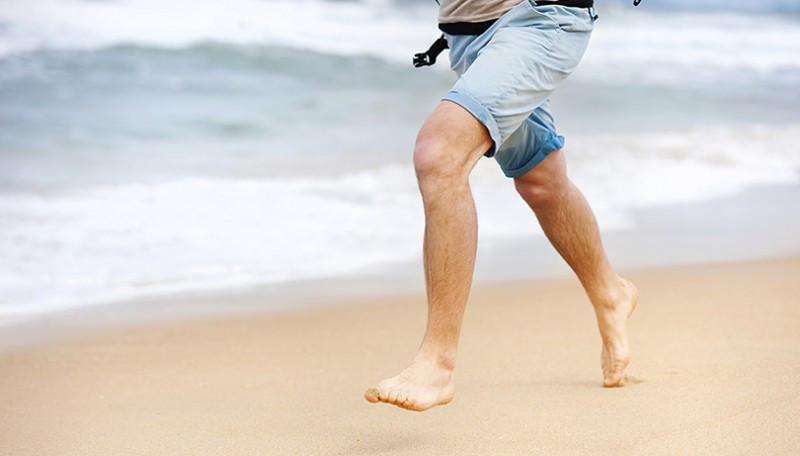Like a myriad other health issues that arise in the body, athlete's foot is an illness – fungal infection – which is affected by the state of one's immune system. This pesky infection is fairly common, especially among athletes, and can be difficult to get rid of.
Fortunately, there are immune and lifestyle factors which greatly affect the chances of contracting and then eliminating athlete's foot.
What Is Athlete's Foot?
Athlete's foot is an infection which begins at one's toes and has the potential to spread up the side of the foot, per
mayoclinic.com. It manifests as a scaly, red rash and is known for its persistent itch.
The places where one is most likely to catch athlete's foot are in warm, damp places such as locker rooms and public pools, per
nail-fungus-toenail.com. Itching is the first and perhaps most bothersome symptom, but if left untreated, this infection can also cause the affected skin to become extremely soft and sensitive, and even to shed.
What Can I Do To Alleviate and/or Prevent Athlete's Foot?
Of course, it is important that you take measures to avoid getting athlete's foot in the first place, and there are various measures you can take to do so. Per
mayoclinic.com, if you are in a place where you might be liable to contract athlete's foot, you should wash your feet frequently, change socks regularly, switch out your shoes, and keep your feet dry when you can.
Per
nail-fungus-toenail.com, a well-functioning immune system is very important in fighting off this infection, just as it is for any other infection. Nutritional support, as well as a full and healthy diet, are perhaps the most important factor in keeping your immune system at the top of its game. In this list, we've included a number of vitamins, as well as other methods, to help fight off athlete's foot.
Vitamin A. This essential vitamin is helpful in keeping your skin from being damaged by harmful organisms in the form of infection, per
nail-fungus-toenail.com. It helps keep the mucous membranes that make up your skin healthy, and it does so by acting as an overall immune-boosting agent. Not to mention, Vitamin A is essential for many functions throughout your body.
Vitamin E. This vitamin has the potential to be effective against athlete's foot in a couple of different ways, per
tinyqualityhome.com. Firstly, vitamin E contains antioxidants that can prevent fungal infections, as well as other types of infections. Additionally, vitamin E might help rid the blisters and itching that result from athlete's foot because it helps fight inflammation. Vitamin E is worthwhile to take as a supplement, but it can also be taken out of capsules and applied directly to the affected area.
Vitamin B complex. A vitamin B complex is useful for the variety of positive B nutrients that it contains. Among these are niacin, riboflavin, vitamin B6, and folic acid. Per
nail-fungus-toenail.com, all of these nutrients consumed in tandem can be of great value to your immune system, which works to fight infections such as athlete's foot.
Coconut oil. This naturally occurring oil has many uses, and treating infections of the skin such as athlete's foot is one of them. This is because coconut oil contains caprylic acid, which is effective in treating infections of the skin, per
tinyqualityhome.com. It is recommended that you first clean the infected area with soap and water or an antiseptic, and then gently spread coconut oil on the affected area. This remedy should be used daily until it is no longer needed.
Aloe vera. This natural remedy can be found in gel form. Per
tinyqualityhome.com, aloe vera can be effective when applied directly to the infected area, because of its antibacterial and antifungal properties. It is recommended that if you use aloe vera, you use it once or twice daily until it is no longer needed.

